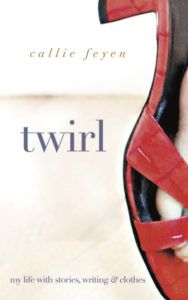I’m not far into the book, but I’ve fallen hard for Stoner, by John Williams. Williams had me at page 5, when William Stoner, the hero of the tale, sits down at the kitchen table across from his father. His father, a farmer and a man of work and of a few words, tells his son about an agricultural program at the University of Columbia.
“There would be books and things,” Stoner’s father says.
That’s when tears filled my eyes.
“William spread his hands on the tablecloth, which gleamed dully under the lamplight.”
That’s when the tears spilled.
About five pages later Stoner is sitting in a required survey of English literature course, trying to come to terms with one of Shakespeare’s sonnets, when his professor, Archer Sloane, in what seems to be a moment of pure possession, speaks the sonnet from memory, “as if the words and sounds and rhythms had for a moment become himself.”
Then he looks at Stoner and says, “Mr. Shakespeare speaks to you across three hundred years, Mr. Stoner, do you hear him?” A few lines later Sloane asks, “What does he say to you, Mr. Stoner?”
Stoner has no reply to give, but that doesn’t mean he doesn’t have one within him. What do you say to words that’ve travelled 300 years (and now, even more) to find you?
The scene reminds me of my first meeting with author Lauren Winner. She was one of my teachers in graduate school, and on this particular day, a group of us were sitting in a classroom perhaps much like the one Stoner was in, doing the same thing Stoner was doing — trying to come to terms with words.
It was summer. We were tired and overwhelmed. I think most of us were intimidated by Lauren, a person at least two of us (one was me) had applied to this program specifically to work with. Nonetheless, here we were. We’d made it through our first year, we’d come this great distance, stumbling and trying and doing all this heavy lifting. Lauren, whom I often equate to Severus Snape, had no time for pep talks. She had no time for get-to-know-me garbage. She expected us to work, and now.
Memory could be wrong, but I think she slammed her hand on the table in discouragement over our lame efforts. She might’ve raised her voice. I got scared and reverted to my 17-year-old self and got an attitude. I began to pop my gum. Loudly.
And Lauren told me to knock it off.
Memory is not wrong here. I started to cry. We were supposed to be writing, and I was sobbing. I cried because I missed my children. I cried because I didn’t understand one word of what I was reading. I cried because I worried I was wasting my time — and money — following this pursuit to write, and here I was popping my gum because someone hurt my feelings. I cried because I was in love with words, but didn’t know why. I cried because I believed I had something to share but didn’t know if I’d ever be able to get it out.
Later, sitting outside next to a pond with fish as long as my arm and as orange as a rising sun, who swarmed the edge with their mouths open, ready to be fed, a classmate sat down next to me and said, “Honestly, that couldn’t have gone worse.”
If Stoner is the hero in his story, then Sloane, his professor, is his mentor. Like Chiron is for Percy Jackson. Like Dumbledore is for Harry Potter, or perhaps even more so, Snape, the unsung hero of that series. Like Lauren was for me.
I often wonder who has the tougher job — the mentors or the heroes. There is nothing easy about teaching someone that they must work to become who they are. And becoming themselves, they must forget it and do it all over again. The work is eternal.
If this is a hero’s journey, then it is words that I think are both the Call to Adventure and the Reward that the hero must claim, understand, and bring back to the Ordinary World where he will live, altered forever.
I think Stoner understand this. What he reads in his English course, “trouble[s] and disquiet[s] him in a way nothing has ever done before,” but he chooses to pursue them at the urging of Sloane. At one point Stoner chooses words over going to to war. It is not an easy decision, and as Stoner is deciding, Sloane tells him, “You must remember what you are and what you have chosen to become, and the significance of what you are doing.”
My colleague was correct: That first meeting with Lauren could not have gone worse, and yet I don’t think it was a throwaway moment. I think it’s a moment filled with significance. Like Sloane, Lauren wanted me to listen to the words. She was calling me to adventure. It might not have been a perfect moment, but it was a way to begin. And to borrow the words from another mentor, L.L. Barkat, who gently but passionately holds me to high expectations, we all must “somehow begin.”
Try It
Write a love poem to words. What do they mean to you? What do you hear from them? What purpose to they serve in your life?
Write a poem to a favorite writer exploring how their work influences yours. For an example, check out India.Arie’s Wonderful, a tribute to Stevie Wonder.
Photo by Pedro Alonso Creative Commons, via Flickr. Post by Callie Feyen.
Browse more poetry prompts
A Writer’s Dream Book
“Callie Feyen has such a knack for telling personal stories that transcend her own life. In my years in publishing, I’ve seen how hard that is—but she makes it seem effortless, and her book is such a pleasure. It’s funny, it’s warm, it’s enlightening. Callie writes about two of the most important things in life—books and clothes—in utterly delightful and truly moving ways. I’m impressed by how non-gimmicky and fresh her writing is. I love this book.”
- Poetry Prompt: Courage to Follow - July 24, 2023
- Poetry Prompt: Being a Pilgrim and a Martha Stewart Homemaker - July 10, 2023
- Poetry Prompt: Monarch Butterfly’s Wildflower - June 19, 2023


Richard Maxson says
Dear Mary Oliver
What if I lived in your face,
in the lines there, like a tattoo
and my fingers could read
the braille of time and space,
around your eyes.
I have thought of them as
doors that I could enter;
you would be there, in white,
on the floor, cross-legged,
smiling at my sudden shame
because you too burst in
once somewhere, unprepared,
fully grown and a little tired
from the middle road,
tattered with care and duty,
wanting for your own the stone
of sound that carries the river’s words,
in its rushing foam and fury—
but now you speak of sweet gazelles,
and the grandeur of thrush’s song;
you say, continue on, if you dare,
you say there is a cave, somewhere,
behind a waterfall, sit there listening until
you hear a silence. Then, enter it.
Will Willingham says
Grateful to Lauren Winner for what she helped make solid in you. 🙂
Callie says
Will, thank you so much.